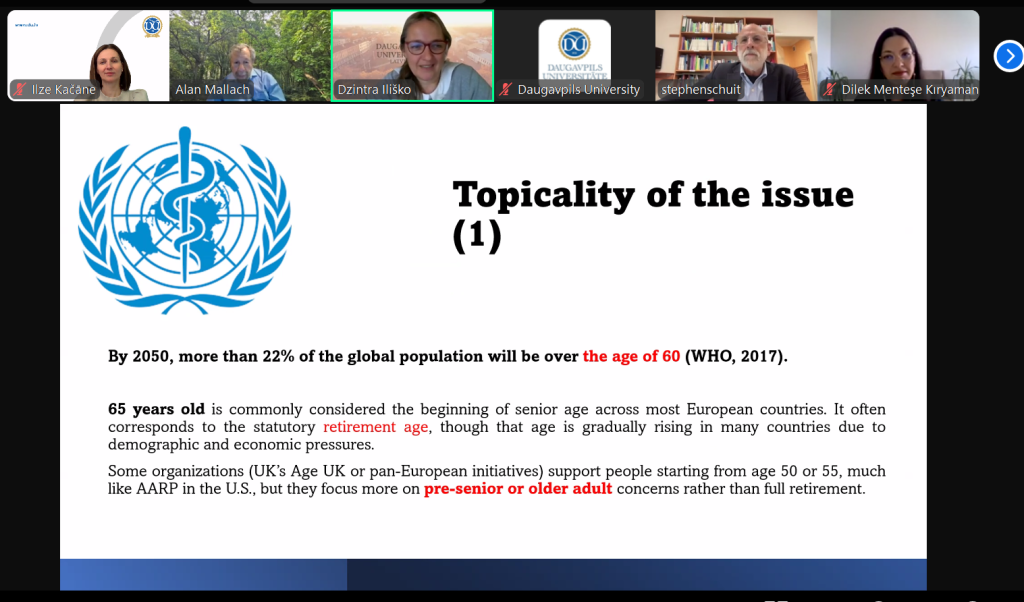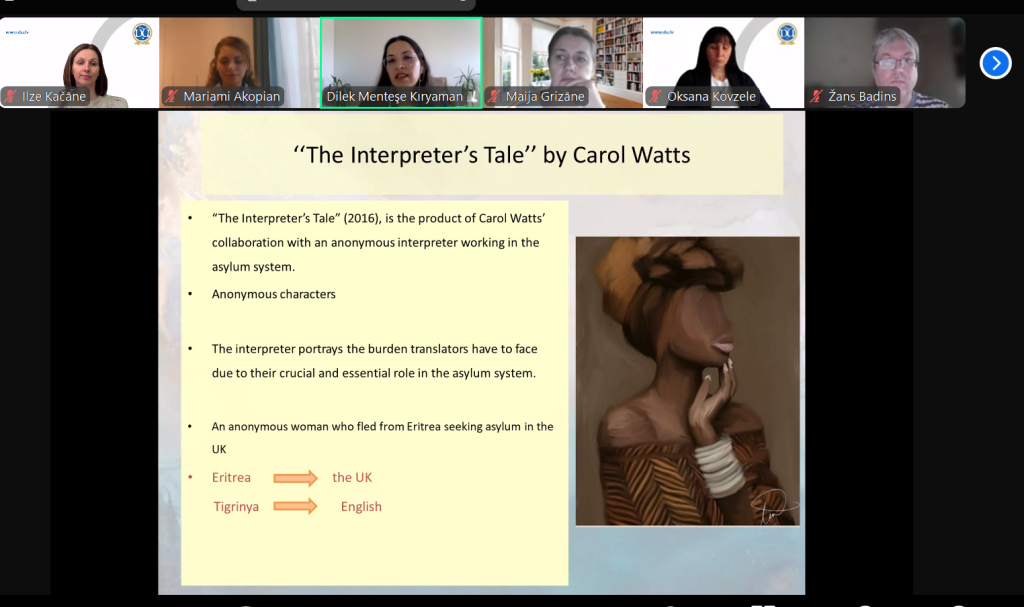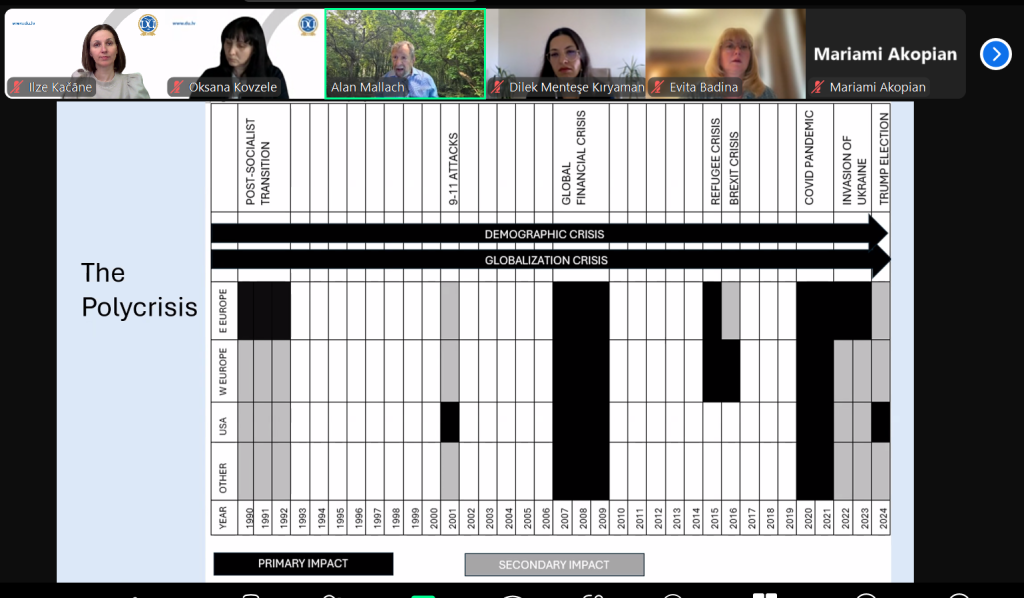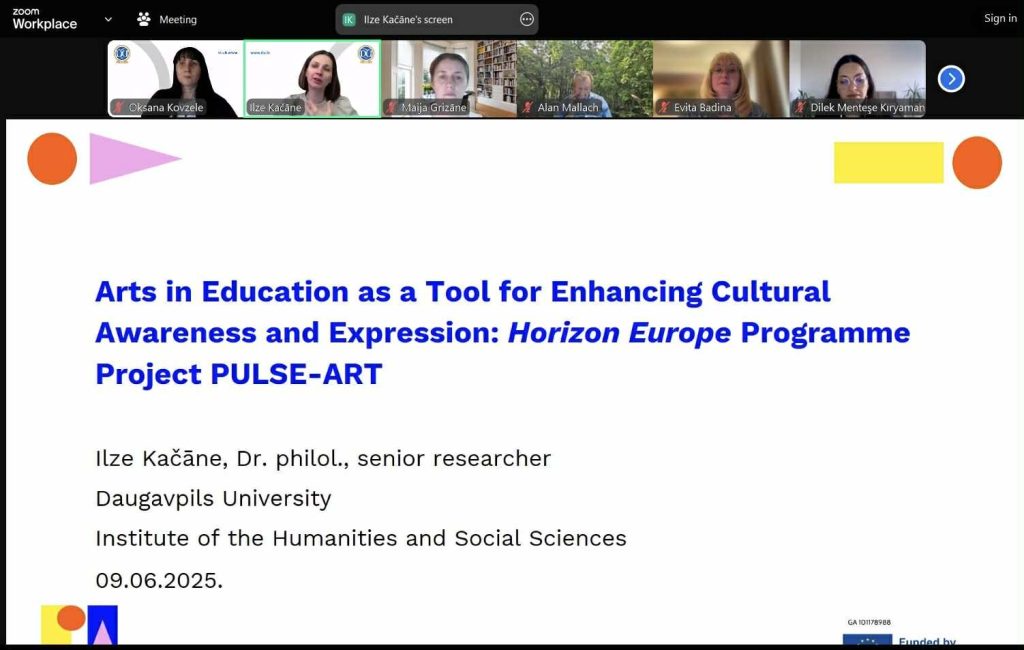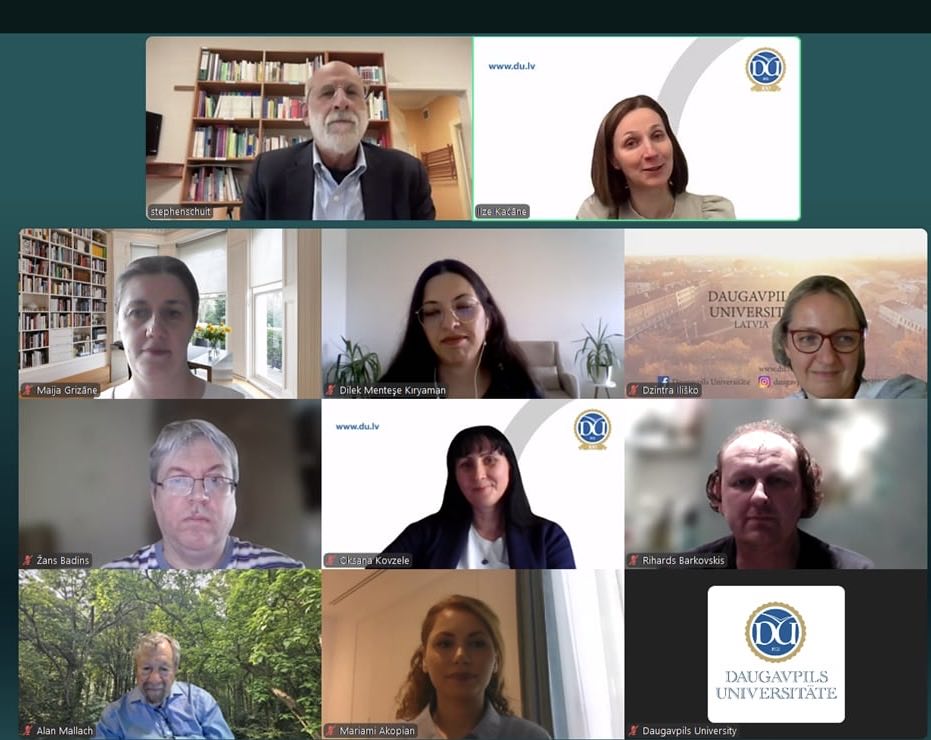On 9 June, 2025, researchers from Daugavpils University (DU) Institute of the Humanities and Social Sciences (IHSS) participated in the 8th International Academic conference “Human: Language, Society, Culture”, a virtual one-day conference, organized by the Society “Kultūras Artefakts” and IHSS Centre of Cultural Research. Among the participants were scholars from Qatar, Turkey, the USA, and Latvia, among them Alan Mallach, a senior fellow at the Center for Community Progress in Washington DC, the author of the books Smaller Cities in a Shrinking World: Learning to Thrive Without Growth (2023), The Changing American Neighborhood: The Meaning of Place in the 21st Century (2023, with Todd Swanstrom), and The Divided City: Poverty and Prosperity in Urban America (2018), Steven R. Schuit, an English Language Fellow with the U.S. State Department sited at Daugavpils University, and others. The Conference programme was intentionally designed to be interdisciplinary, encompassing a broad range of disciplines like linguistics, literature, culture studies, education, and social studies.
Prof. Steven R. Schuit presented a new ESL teaching methodology “The Emotional Values Auction” developed and piloted at Daugavpils University for the development of students’ skills in the areas of writing, reading, presenting and speaking.
Prof. Anita Pipere, prof. Dzintra Iliško and assoc. prof. Aleksejs Ruža spoke about seniors’ challenges in higher education institutions, focusing on ageism, gender, and disability as factors that influence their academic participation and recognition. Drawing on intersectionality theory, they pointed to institutional, cultural, and structural practices and barriers that marginalize senior academics or limit their full engagement in academia.
Researcher, doc. Maija Grizāne and senior researcher Oksana Kovzele analysed the tradition of celebrating the Neptune Festival and its transformations in the Soviet Latvia, paying special attention to the celebration procedure and its relevance to a certain time and place.
Researcher Evita Badina and researcher, doc. Žans Badins analysed the 2nd Spartakiad of the Peoples of the USSR as portrayed in Sovetsky Sport and Sports, showing how sport served as a tool of ideological mobilization, promoting the image of the ‘new Soviet person’ and broadcasting socialist values and unity. Their research also revealed how the Latvian-language newspaper Sports subtly balanced Soviet internationalism with local identity, presenting sport as a space where one could be both Latvian and Soviet – a reflection of nuanced national policy in late 1950s Soviet Latvia.
Senior researcher Ilze Kačāne promoted Horizon Europe programme project PULSE-ART and focused on arts in education as a tool for enhancing cultural awareness and expression – one of the eight key competences for lifelong learning that is significant for intercultural communication, creative expression, civic engagement, and personal growth, and which allows to appreciate and experience emotions in music, performing arts, literature, and the visual arts.
More information:
Centre of Cultural Research
Institute of the Humanities and Social Sciences
e-mail: kpc@du.lv

